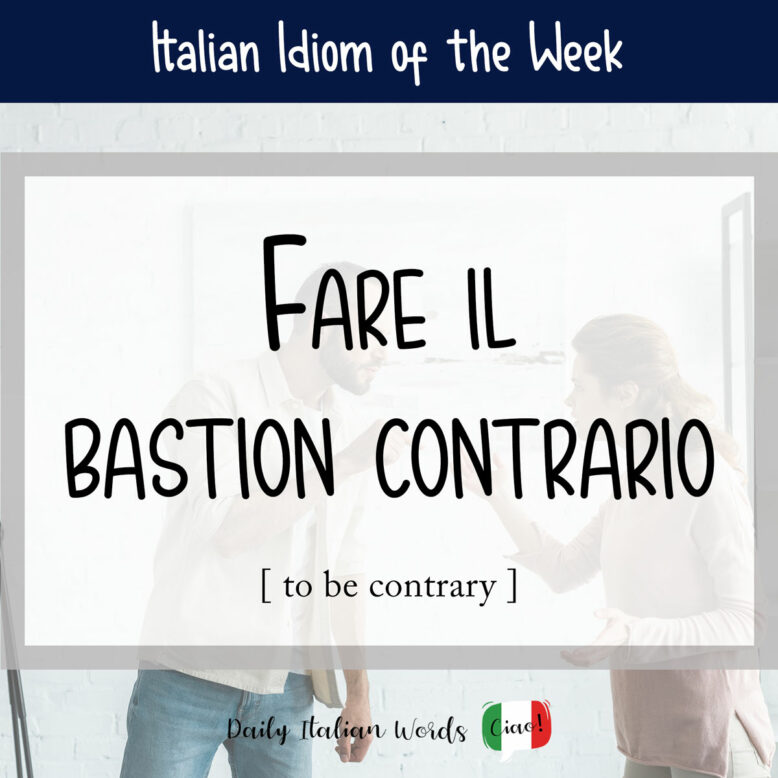A bastian contrario is a polemical individual who adopts opinions and attitudes that go against those held by the majority, so fare il bastian contrario can be translated as “to be contrary” or “to be a contrarian.”
fare il bastian contrario
to be contrary

Before we take a look at the word bastian, which has a far more complex origin story, let’s take a quick look at the word contrario. It is an adjective that means contrary, opposite, contradictory or against, and can become feminine (contraria) or plural (contrari / contrarie). You will often see it in the expression al contrario, which means back to front, backwards, upside-down or inside out.
Mi sono messo la maglietta al contrario!
I put my shirt on backwards!
According to the Accademia della Crusca, the word bastian originally derived from the name of a man named Bastiano, a shortened form of Sebastiano. This individual was presumably very stubborn and contrary, and over time, his name became synonymous with these traits. Evidence that it derives from a proper name includes its occasional appearance with a capital ‘B’ in some dictionaries.
Bastian is the perfect example of what is called an archetypal name, or the proper name of a real person or fictional character that has become a designation for an archetype of a certain personal trait. Another well-known example is the French word for fox, renard, which came from Renart, the fox hero of the medieval fable Roman de Renart.
Dai, smettila di fare il bastian contrario!
Come on, stop being such a contrarian!
The first attestation of the expression can be traced back to February 28th 1819 in issue 52 of the newspaper Il Conciliatore. It was lated cited in the third edition of writer and literary critic Alfredo Panzini’s Dizionario Moderno (1905).
There are numerous theories about who Bastian actually was. In Piedmont, the popular belief is that he was legendary outlaw Sebastiano Contrario, who took part in the Savoyard siege of Castelvecchio during the war between Savoy and the Republic of Genoa in 1672. In Florence, on the other hand, it is believed he was the Florentine painter Bastiano da San Gallo due to his unusual character.
Note that bastiancontrario also exists as one word, and can be used as an adjective too. Additionally, you can use the verb essere (to be) rather than fare (to do): essere un bastiancontrario (to be a contrarian).

Heather Broster is a graduate with honours in linguistics from the University of Western Ontario. She is an aspiring polyglot, proficient in English and Italian, as well as Japanese, Welsh, and French to varying degrees of fluency. Originally from Toronto, Heather has resided in various countries, notably Italy for a period of six years. Her primary focus lies in the fields of language acquisition, education, and bilingual instruction.


